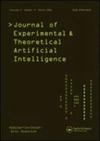Deep asset allocation for trend following investing
IF 1.7
4区 计算机科学
Q3 COMPUTER SCIENCE, ARTIFICIAL INTELLIGENCE
Journal of Experimental & Theoretical Artificial Intelligence
Pub Date : 2021-04-05
DOI:10.1080/0952813X.2021.1908429
引用次数: 0
Abstract
ABSTRACT Trend following strategies are well-known to exhibit excellent excess return performance across a wide range of asset classes in various global markets. For the equity asset class in particular, while the securities selection part is relatively a straightforward procedure, the weight allocation part is more debatable and it has traditionally been identified with the equal-weighted allocation strategy. In this paper, we examine security’s own return-based weight allocation strategy for trend following investing and find that this strategy generates superior returns to several well-established weight allocation schemes. In particular, if the true return of the holding period is used ex ante for weight allocation, it is found that this strategy can generate absolutely huge excess returns. Motivated by this finding, we investigate the efficacy of machine learning techniques for regression of securities’ returns to improve the weight calculation in this framework. Empirical results indicate that deep learning provides the means of regression with which largest excess return gains are possible. In particular, it is demonstrated that the return-based weight allocation strategy defined by our proposed deep learning architecture produces substantial abnormal returns outperforming all other broadly recognised weight allocation schemes compared in this paper.深度资产配置趋势跟踪投资
趋势跟随策略在全球各种市场的各种资产类别中都表现出优异的超额回报表现。特别是对于股票资产类别,虽然证券选择部分是一个相对简单的过程,但权重分配部分更具争议性,传统上被认为是等权重分配策略。在本文中,我们研究了趋势跟踪投资中证券自身的基于收益的权重分配策略,并发现该策略比几种成熟的权重分配方案产生更高的收益。特别是,如果事先使用持有期的真实收益来分配权重,就会发现这种策略可以产生绝对巨大的超额收益。基于这一发现,我们研究了机器学习技术对证券收益回归的有效性,以改进该框架中的权重计算。实证结果表明,深度学习提供了回归的手段,使最大的超额收益收益成为可能。特别是,我们提出的深度学习架构定义的基于回报的权重分配策略产生了显著的异常回报,优于本文中比较的所有其他广泛认可的权重分配方案。
本文章由计算机程序翻译,如有差异,请以英文原文为准。
求助全文
约1分钟内获得全文
求助全文
来源期刊
CiteScore
6.10
自引率
4.50%
发文量
89
审稿时长
>12 weeks
期刊介绍:
Journal of Experimental & Theoretical Artificial Intelligence (JETAI) is a world leading journal dedicated to publishing high quality, rigorously reviewed, original papers in artificial intelligence (AI) research.
The journal features work in all subfields of AI research and accepts both theoretical and applied research. Topics covered include, but are not limited to, the following:
• cognitive science
• games
• learning
• knowledge representation
• memory and neural system modelling
• perception
• problem-solving

 求助内容:
求助内容: 应助结果提醒方式:
应助结果提醒方式:


